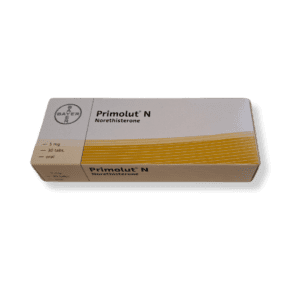- Mon - Fri: 9:00 - 17:00
- 01493 600610
Period delay treatment
Period delay treatment option
Navigating Period Delay: Understanding Causes and Treatment Options.
There isn’t a specific period delay tablet designed solely for the purpose of delaying menstruation. However, certain medications that affect hormonal levels can be used to regulate or manipulate menstrual cycles. Here are some examples:
Combined Oral Contraceptives (COCs): Birth control pills containing both estrogen and progestin are often prescribed to regulate menstrual cycles. By manipulating the hormone levels, these pills can help delay or regulate periods.
Progestin-Only Pills (Mini Pills): These pills, which only contain progestin, may also be used to regulate menstrual cycles. They are usually taken continuously, without the typical placebo week, to delay menstruation.
Norethisterone: This is a synthetic form of progestin that can be taken to delay menstruation. It is typically prescribed for a specific number of days before the expected period.
How period delay tablets work?
Period delay tablets, commonly known as Norethisterone or similar medications, work by manipulating the levels of reproductive hormones in the body, particularly progesterone. Here’s a brief overview of how these tablets function:
Progestin Effect:
- Norethisterone is a synthetic form of the hormone progesterone.
- Progesterone is involved in regulating the menstrual cycle and preparing the uterine lining for a potential pregnancy.
Delaying Menstruation:
- Normally, a drop in progesterone triggers the shedding of the uterine lining, leading to menstruation.
- By taking period delay tablets containing progestin, you maintain elevated progesterone levels, preventing the hormonal changes that usually initiate menstruation.
Continuous Use:
- Period delay tablets are typically taken in the days leading up to the expected period.
- Instead of following the regular cycle of a combination birth control pill (21 active pills followed by 7 placebo pills), a woman may take a progestin-containing tablet continuously.
Postponing Withdrawal Bleeding:
- When a woman stops taking the period delay tablets, there is a decrease in progestin levels, simulating the natural drop in progesterone.
- This triggers withdrawal bleeding, similar to a period, but it is not a true menstrual cycle as there has been no ovulation during the tablet use.
Individual Variation:
- The effectiveness and response to period delay tablets can vary among individuals.
- Some may experience a delay in menstruation for the intended duration, while others may still have breakthrough bleeding.
Length of treatment:
The length of treatment with period delay tablets, such as Norethisterone, can vary depending on individual needs and circumstances. In general, these tablets are often prescribed for short-term use to delay menstruation for a specific period. Here are some common scenarios:
Occasional Use:
- Period delay tablets are sometimes prescribed for occasional use, such as when a woman wants to delay her period for a special event, vacation, or any other reason.
- In these cases, a healthcare provider might recommend taking the tablets for a specified number of days leading up to the expected start of the period.
Continuous Use:
- In certain situations, period delay tablets may be used continuously to suppress menstruation for an extended period.
- This may be relevant for individuals who, for medical reasons or personal preference, want to reduce the frequency of their periods.
Menstrual Cycle Regulation:
- Some individuals with irregular menstrual cycles may be prescribed period delay tablets as part of an overall strategy to regulate their periods.
- The duration of treatment in these cases would depend on the specific treatment plan outlined by the healthcare provider.
Possible side effects:
Potential side effects associated with the use of period delay tablets may include:
Nausea: Some individuals may experience nausea or an upset stomach while taking these tablets.
Headaches: Headaches can be a common side effect of hormonal medications, including period delay tablets.
Breast Tenderness: Hormonal changes can lead to breast tenderness or discomfort.
Mood Changes: Some individuals may experience changes in mood, including mood swings or irritability.
Breakthrough Bleeding: While the goal is to delay menstruation, some individuals may still experience breakthrough bleeding or spotting.
Fluid Retention: Progestin hormones can lead to fluid retention, causing bloating or mild swelling.
Changes in Libido: Some individuals may experience changes in sexual desire.
Menstrual Irregularities After Stopping: After discontinuing the tablets, there may be a delay before regular menstrual cycles resume.
It’s crucial to discuss potential side effects and risks with a healthcare professional before starting any medication. Additionally, individuals with certain medical conditions or contraindications may not be suitable candidates for period delay tablets. If someone experiences severe or persistent side effects, they should seek medical attention promptly.
Reasons to stop period delay medication immediately:
While period delay medications like Norethisterone can be effective for many individuals, there are situations where it’s important to stop the medication immediately and seek medical attention. Here are some reasons to stop period delay medication:
Severe Allergic Reaction: If you experience symptoms of a severe allergic reaction such as difficulty breathing, swelling of the face or throat, or hives, stop taking the medication and seek emergency medical attention.
Unexpected Vaginal Bleeding: If you experience unexpected, heavy, or prolonged vaginal bleeding while taking period delay medication, especially if it persists after stopping the medication, it’s important to consult with a healthcare professional.
Severe Headaches or Visual Disturbances: Persistent or severe headaches, migraines, or visual disturbances should be addressed promptly. These symptoms may indicate an underlying issue and require medical evaluation.
Chest Pain or Shortness of Breath: If you experience chest pain, shortness of breath, or other symptoms of a possible cardiovascular issue, stop the medication and seek immediate medical attention.
Leg Swelling or Pain: Swelling, pain, or redness in the legs could be indicative of a blood clot. Discontinue the medication and seek medical help if you experience these symptoms.
Jaundice (Yellowing of the Skin or Eyes): Yellowing of the skin or eyes could signal liver problems. Stop taking the medication and consult with a healthcare provider.
Severe Mood Changes or Depression: If you experience severe mood changes, depression, or thoughts of self-harm while taking period delay medication, it’s crucial to stop the medication and seek immediate mental health support.
Signs of Stroke or Blood Clot: Symptoms such as sudden numbness or weakness, confusion, difficulty speaking, or sudden severe headaches may indicate a stroke or blood clot. Stop the medication and seek emergency medical assistance.
Period delay medication is not recommended:
While period delay medications, such as Norethisterone, can be effective in certain situations, it’s important to note that they may not be suitable for everyone, and their use is not always recommended. Here are several reasons why period delay medication may not be advised:
Medical Conditions: Individuals with certain medical conditions, such as a history of blood clots, liver disease, or uncontrolled hypertension, may be advised against using period delay medication due to potential health risks.
Unpredictable Menstrual Irregularities: For those with irregular menstrual cycles or underlying reproductive health concerns, period delay medication might not provide the desired results and could lead to unpredictable breakthrough bleeding.
Hormonal Sensitivity: Some individuals may be more sensitive to hormonal changes, and the use of period delay medication can exacerbate mood swings, headaches, or other hormonal side effects.
Interaction with Other Medications: Period delay medications can interact with certain medications, potentially reducing their effectiveness or causing adverse effects. It’s essential to disclose all medications you are taking to your healthcare provider.
Pregnancy and Breastfeeding: Period delay medication is not suitable for pregnant individuals or those who are breastfeeding. It’s important to explore alternative options for menstrual management during these periods.
Long-Term Use Concerns: Continuous or frequent use of period delay medication may not be advisable due to potential long-term side effects. It’s crucial to discuss the duration and frequency of use with a healthcare professional.
Personal Preferences and Values: Some individuals may prefer to allow their menstrual cycle to occur naturally, and others may have cultural or personal reasons for not using period delay medication.
Plan your life on your terms. Discover our effective period delay treatments online!
Start a free consultation now!
HOW IT WORKS
Three easy steps for your private treatment ...
STEP 01
Complete consultation questionnaire
Complete consultation for your selected condition and order your medication.
Please answer the health questionnaire honestly, this will ensure that the medication you are requesting is right for you.
STEP 02
Prescriber approves
The UK registered prescriber will review your questionnaire and approve your order. In some cases, the prescriber may specify a preferred treatment.
STEP 03
Delivered to your door
Your treatment will be sent directly from our NHS online pharmacy, Online Chemist based in Norfolk.
General Pharmaceutical Council's advice for online treatment
The General Pharmaceutical Council (GPhC) and other UK health organisations have produced a handy guide to help people going online for medicines or treatment.
Read the guideline here
If you have a medical emergency do not use this service.
Please contact your own GP, visit Accident and Emergency or call 999 or 111 immediately.






